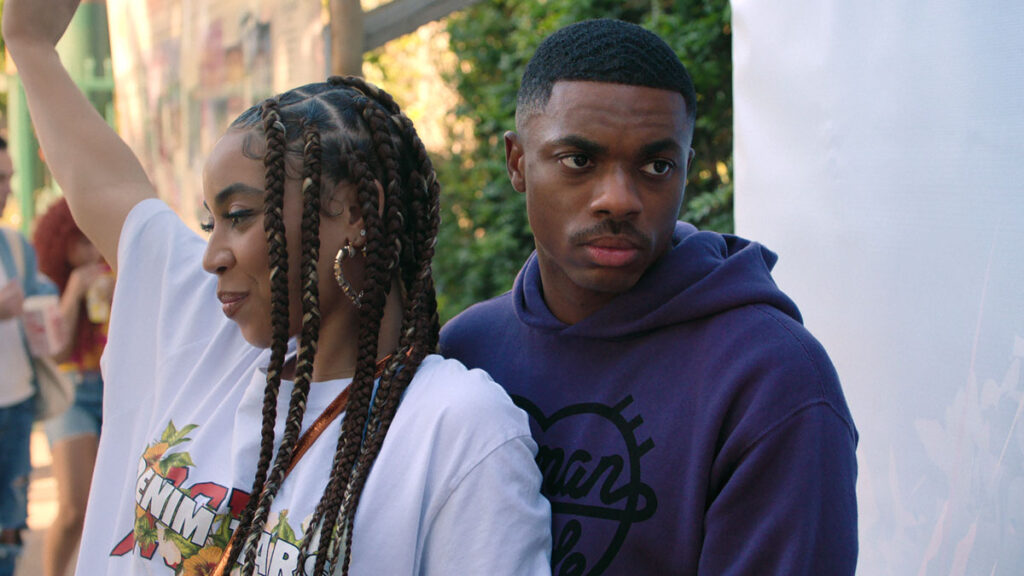“‘Vince will tell me something every day that he thinks is normal, and it’s absolutely crazy, and I have to stop him and try to make him realize what he just told me makes zero sense, and doesn’t happen to regular people on a regular day.’” That’s how Vince Staples says his manager Corey Smyth pitched The Vince Staples Show to potential buyers — a pitch that proved successful, as the five-episode first season just debuted on Netflix.
The rapper wears multiple hats on the surreal comedy, co-creating, writing, and starring in the five-episode first season, which draws us into the strange and foreign land known as Long Beach, California. Strange and foreign, at least, when seen through the eyes of Staples, playing a “kind of famous and sort of rich” version of himself. In Vince’s world, a bank robbery is a good opportunity to connect with an old friend, and a theme park is a good way to make a new enemy, all of it coming together as a dreamy, at times surreal experience.
Making a TV series didn’t come out of nowhere for Staples — when he first started making working, he says, “I had a lot of people who gravitated towards the things that we did visually, whether that be a cover or a video, and then you kind of explore that over time.” In fact, he first started having ideas for what would become The Vince Staples Show eight or nine years ago. “It’s been a minute,” he acknowledges.
Back then, though, he says “it was too early to bring it to fruition.” So instead, he says, “I just started doing more work, more auditions, more short roles here and there, voiceover work, and then we got to the point where we were able to do it, from hard work and persistence.”
Staples adds that there weren’t any specific ideas he had initially for the series — instead, he was interested in the “utilization of perspective — a concept of how we perceive reality and the things that we ignore, versus things that we heighten. That was just the idea that I’ve always had, throughout music or just creativity in general. What are the things that we pay attention to? What are the things that really affect us and what are the things that happen in the background that are worth paying attention to?”
As he continues, a TV series was the perfect medium to explore these concepts, because “in the visual medium, you can play with depth, you can play with size of the frame, you can play with so much stuff to just throw people into a mix and showcase things that you can’t necessarily do with a song.”

